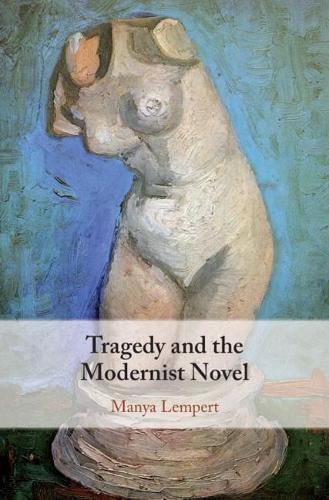Full Product Details
Author: Manya Lempert (University of Arizona)
Publisher: Cambridge University Press
Imprint: Cambridge University Press
Dimensions:
Width: 16.00cm
, Height: 2.00cm
, Length: 23.50cm
Weight: 0.500kg
ISBN: 9781108496025
ISBN 10: 1108496024
Pages: 290
Publication Date: 10 September 2020
Audience:
Professional and scholarly
,
Professional & Vocational
Format: Hardback
Publisher's Status: Active
Availability: Manufactured on demand

We will order this item for you from a manufactured on demand supplier.
Reviews
'This is an extraordinarily erudite book about literary modernism and the relationship between it and the history and theory of tragedy. Lempert's overall discussion of Greek tragedy is absolutely riveting and her close-reading of form is extraordinarily sensitive. Lempert has produced an extraordinarily bold argument that is likely to attract a great deal of attention not only from modernist scholars but from others further afield.' Ato Quayson, Stanford University, California 'The themes of this book could hardly be more resonant and enduringly relevant to modernist literary studies. This book pits tragedy and modern writing against nihilism - a way of renouncing or not caring about existence - finding a way for moments of light to counter total eclipse of meaning without callow resolution or pat consolation.' Ronan McDonald, University of Melbourne
'This is an extraordinarily erudite book about literary modernism and the relationship between it and the history and theory of tragedy. Lempert's overall discussion of Greek tragedy is absolutely riveting and her close-reading of form is extraordinarily sensitive. Lempert has produced an extraordinarily bold argument that is likely to attract a great deal of attention not only from modernist scholars but from others further afield.' Ato Quayson, Stanford University, California 'The themes of this book could hardly be more resonant and enduringly relevant to modernist literary studies. This book pits tragedy and modern writing against nihilism - a way of renouncing or not caring about existence - finding a way for moments of light to counter total eclipse of meaning without callow resolution or pat consolation.' Ronan McDonald, University of Melbourne 'This is an extraordinarily erudite book about literary modernism and the relationship between it and the history and theory of tragedy. Lempert's overall discussion of Greek tragedy is absolutely riveting and her close-reading of form is extraordinarily sensitive. Lempert has produced an extraordinarily bold argument that is likely to attract a great deal of attention not only from modernist scholars but from others further afield.' Ato Quayson, Stanford University, California 'The themes of this book could hardly be more resonant and enduringly relevant to modernist literary studies. This book pits tragedy and modern writing against nihilism - a way of renouncing or not caring about existence - finding a way for moments of light to counter total eclipse of meaning without callow resolution or pat consolation.' Ronan McDonald, University of Melbourne
Author Information
Manya Lempert is Assistant Professor of English at the University of Arizona. She specializes in the nineteenth- and twentieth-century novel, ancient and modern tragedy and philosophy, and theories of evolution.




